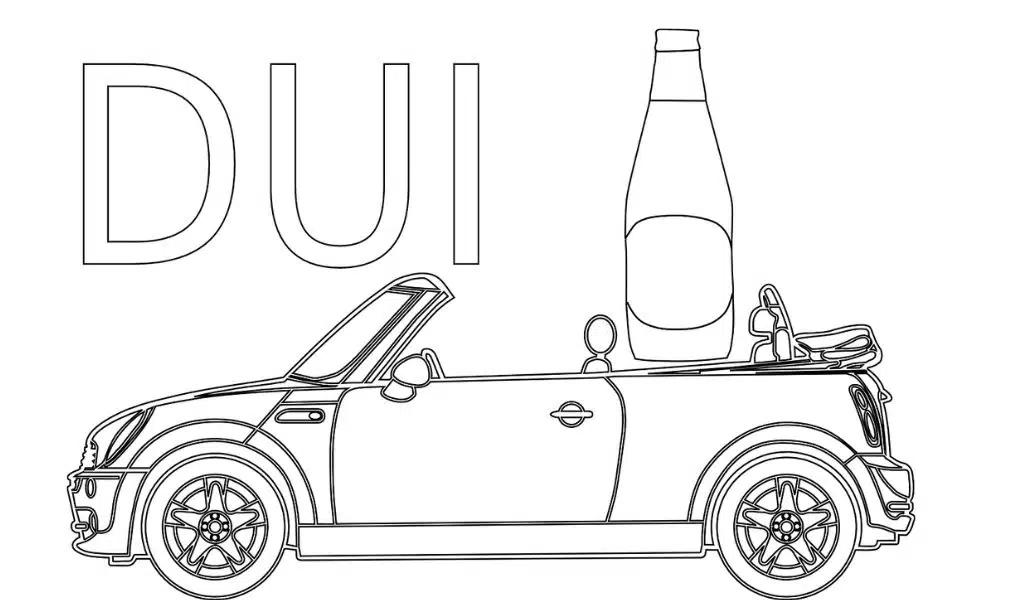Operating While Intoxicated or Operating While Impaired (OWI) is a moniker adopted by Indiana (Wisconsin, Michigan, and Iowa as well) to replace the traditional DUI or Driving Under the Influence descriptor. They both mean the same thing—Having a blood alcohol concentration (BAC) of over 0.08% or driving unlawfully in some other way while being under the influence of alcohol or drugs.
In Indiana, OWIs are serious offenses with specific rights and potential consequences. It’s important to be aware of your rights and the potential consequences to make informed decisions and take appropriate actions.
Note that this is not legal advice and your mileage may vary. We recommend going to a specialist as soon as possible, such as a Crown Point criminal lawyer or an Indiana license reinstatement lawyer, depending on the case against you.
Basic Rights
There are 4 basic fundamental rights that you should be aware of when charged with an OWI or DUI case. The first is the right to legal representation—Pretty self-explanatory. Essentially, you’re entitled to freely consult with an attorney and have legal representation throughout the legal proceedings. You cannot be detained illegally or forced to say anything without legal representation.
Next up is the right to remain silent. Avoid even the smallest possibility of self-incrimination by not commenting on anything or making any statement to law enforcement without your attorney present.
You also have a right to refuse chemical testing.
Although Indiana has an implied consent law, which means you’re deemed to have consented to chemical testing (breath, blood, or urine) by operating a vehicle to determine your BAC, you do have a right to refuse these tests if there is substantial ground for you to do so. Alternatively, if you’ve done nothing wrong and are forced to take a BAC test, you can use this right to protect yourself and make the evidence inadmissible in court.
Note that refusing a BAC test without a reasonable explanation or while in breach of law can make the issue worse and might even lead to license suspension.
Lastly, there’s the right to due process. This is your right to get a fair and impartial trial, present a defense, and be presumed to be innocent until proven guilty.
Keep these basic rights in mind when charged with a DUI. They can help you when arguing your case or strategizing.
Common Consequences
Now, let’s talk about the most common consequences of being charged with an OWI or DUI infraction. There are five consequences you should know about—Criminal charges, license suspension, an IID in your vehicle, higher insurance premiums, and a public criminal record (more on expunging this in the next section).
- Criminal Charges: OWI/DUI offenses in Indiana are criminal offenses that can result in fines, probation, mandatory substance abuse programs, community service, license suspension, and even incarceration, depending on the circumstances and prior convictions.
- License Suspension: If convicted of OWI/DUI, your driver’s license may be suspended for a certain period, ranging from 90 days to several years, depending on factors such as the offense’s severity and any prior convictions.
- Ignition Interlock Device: In some cases, the court may require the installation of an ignition interlock device (IID) in your vehicle. This device measures your BAC before allowing the vehicle to start, acting as a preventive measure against driving under the influence.
- Increased Insurance Rates: A conviction for OWI/DUI can lead to increased insurance premiums or even policy cancellation. Insurance companies often consider such offenses as indicators of high-risk behavior.
- Criminal Record: A conviction for OWI/DUI will result in a criminal record, which can have long-term implications, including potential difficulties with employment, professional licensing, and background checks.
Circumstances determine the consequences. Also, prior convictions and individual case details often influence the case in a variety of ways. It’s best to consult with an OWI/DUI attorney in Indiana to understand the specific rights applicable to your situation so that you can navigate the legal process safely and effectively.
What to do After an OWI Charge?
We all know that OWIs in your record are not ideal. The first thing you should ensure is that you take the necessary precautions and pay all fines duly.
Next, you might want to look into the possibility of an expungement. You can file for an expungement after 5 years from the date of conviction. Additionally, you have to be completely clean—No crimes in the last 5 years of filing for expungement and all court fees and fines paid. In these cases, we recommend you get help from reputable Indiana expungement lawyers for their expertise. They can often make it easier to get the OWI charge expunged from public records.
Insurance is another thing to pay attention to after an OWI charge.
Getting insurance after an OWI or reckless driving charge is more expensive compared to getting it with a clean record. SR-22 insurance is needed for drivers with severe traffic violations. SR-22 is not an insurance policy in itself but a form that insurance companies file on the driver’s behalf. Make sure you’re fully aware of the Indiana SR-22 insurance requirements to know what to expect.
Overall, an OWI makes your life significantly harder but it’s not the end of the world. Most drivers, with proper caution and due diligence, can come out on top of any problems caused by OWI charges on their record.




































